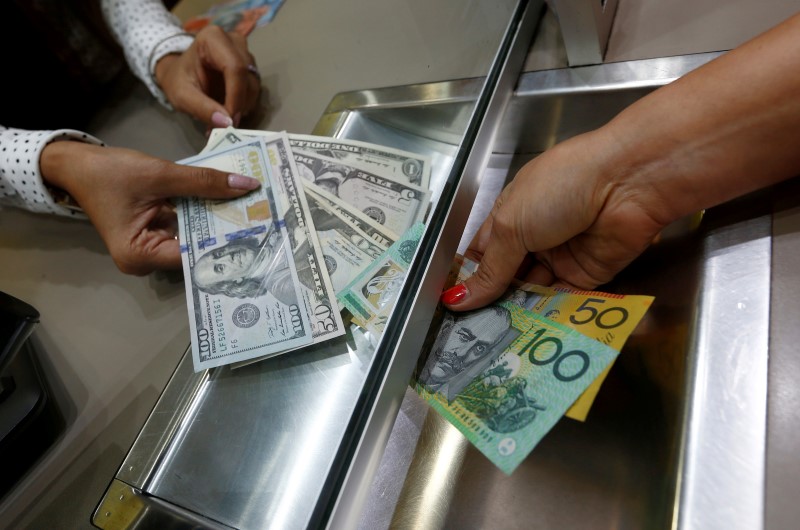Who is Kevin Hassett? Wolfe looks at the Trump ally tipped to become Fed Chair.
By Anirban Nag
LONDON (Reuters) - The Australian dollar recovered from a wobbly start on Monday, as commodities rose on expectations that global central banks are likely to provide more stimulus to offset the impact of Britain's vote to leave the European Union.
Traditional safe-haven currencies such as the yen
Trading was subdued in London afternoon trade as U.S. markets are shut for the Independence Day public holiday.
Australia's election this weekend produced no clear winner after more than two-thirds of the votes were counted, sending the higher-yielding, commodity-linked dollar down to $0.7410
"For the big picture, the election result is hardly relevant," Commerzbank (DE:CBKG) currency strategist Ulrich Leuchtmann said, noting expectations that the U.S. Federal Reserve is in no hurry to raise rates was making the Aussie an attractive option.
Bond markets around the world have been rallying, with Treasury yields falling sharply and British gilt yields tumbling to record lows. Investors have priced out any chance of a U.S. rate hike this year while a rate cut by the Bank of England this summer is almost fully priced in.
STABLE POUND
Sterling climbed to $1.3290
Some traders say the uncertainty about when Britain will leave the EU will continue for sometime as the timing of the next steps are unclear.
"Various political decisions need to be taken in Europe in the next few months which can move sterling decisively. We believe Bank of England easing is likely in the second half of 2016, which may already have been priced in somewhat," UBS Wealth Management strategists said in a note.
"Our new forecast of $1.32 should therefore be seen as the mid-point of a wider range, reaching up to $1.38 on the upside, but also not ruling out moves below $1.30."
For the other major currencies, Brexit is starting to fade as a driver, with nervousness soothed by the promises of more stimulus and talk of UK corporate tax cuts to offset the shock of leaving the EU.
The euro stood at $1.1140
